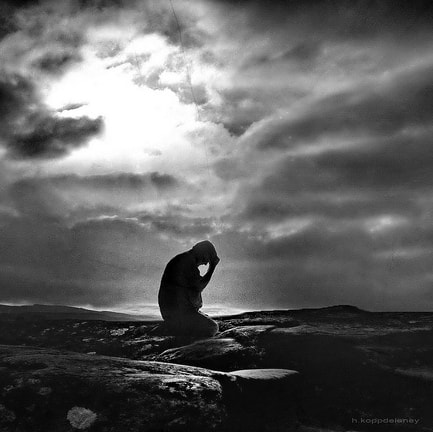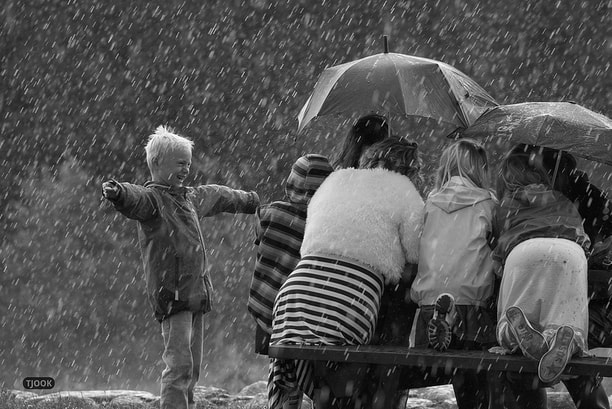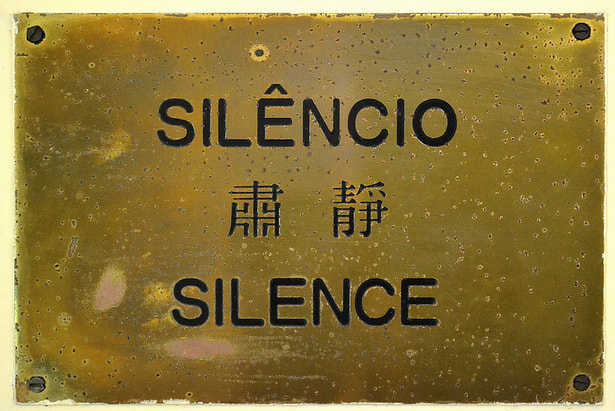If you'd like to hear more of these great messages, visit our Chris Carrillo library!
|
I think prayer may be one area where most Christians fall short. If you'd like to change that in your own life, now hear this: Chris Carrillo's August 26th message at Care-age of Brookfield. A large crowd was on hand to hear him dig into Matthew 17:14-21 with a timely commentary entitled "Some things require prayer and fasting." (If you're reading this via email, please click on the title above to be taken to Chris's message.)
If you'd like to hear more of these great messages, visit our Chris Carrillo library!
2 Comments
I admit it: I cringe almost every time I consider my life before Christ – and even at some events since He transformed me from His creature into His child at the turn of the millennium.
But thanks be to God, it’s not necessary to wallow in our pasts. In fact, contrary to the advice of a certain increasingly powerful medical discipline, He tells us not to: "Do not remember the former things, Nor consider the things of old.” (Isaiah 43:18) "For as the heavens are high above the earth, So great is His mercy toward those who fear Him; As far as the east is from the west, So far has He removed our transgressions from us.” (Psalm 103:11-12) “Brethren, I do not count myself to have apprehended; but one thing I do, forgetting those things which are behind and reaching forward to those things which are ahead, I press toward the goal for the prize of the upward call of God in Christ Jesus." (Philippians 3:13-14) And so on and so forth; the Bible tells us repeatedly that, once we are His, we are to forget the past and move on with our new lives. “Therefore,” wrote the apostle Paul in 2 Corinthians 5, “if anyone is in Christ, he is a new creation; old things have passed away; behold, all things have become new.” What a relief to know that we are no longer the people who thought and said and did all those ghastly things! There’s no longer any need to drown them in booze or drugs, work or entertainment, elaborate self-justifications or any of the hundreds of other ways we humans try to silence our God-given consciences. Because here’s the truth: Once we’ve repented of our sins and trusted in Christ, we are free to leave the past behind and move on with our new lives in Him. Sure, we may have to suffer the temporal consequences of our transgressions as long as this life lasts; but the Lord Jesus paid their eternal penalty, in full, on the cross almost 2000 years ago. “What fruit did you have then in the things of which you are now ashamed?” Paul asks at the end of Romans 6. “For the end of those things is death. But now having been set free from sin, and having become slaves of God, you have your fruit to holiness, and the end, everlasting life. For the wages of sin is death, but the gift of God is eternal life in Christ Jesus our Lord.” What's the appropriate response? Perhaps Paul said it best, in Romans 7: "O wretched man that I am! Who will deliver me from this body of death? I thank God--through Jesus Christ our Lord!" Dear Atheist Mommy and Daddy,
I found fascinating your recent comment that you would never “force religion down” your children’s throats, that you were going to let them decide whether or not to follow such fables, and which ones to pursue. Congratulations. You are, it seems, true champions of religious tolerance. I find this attitude especially interesting in light of how careful you are with your kids about all the little things of life. You’ve taught them, for instance, to wash their hands with Adrian Monk-like enthusiasm whenever they’ve encountered potential germs, and never to share their toothbrushes with their little friends. You make sure that they’re protected by all the right stuff, from vaccinations to bike helmets to the warmest winter duds. You have instructed them, just as your folks once instructed you, not to take candy from strangers – not to mention never ever getting into cars with them. And of course you resort to serious time-outs when they flirt with danger by, for example, wandering into the street when you’re not there to shepherd them. And yet, when it comes to the important things – the things that can give them peace and purpose on this earth and a heavenly eternity – they’re apparently on their own. I just don’t get that. Why would you not investigate the big questions of life just as diligently as you do the latest thought on nutrition and child safety? Isn’t “forever” a little more important than the 70 or 80 or 90 years we spend on this earth? Even if you don’t believe in an afterlife, or absolute truth, or a God, surely you understand that your subjective feelings on the subject have absolutely nothing to do with what’s true. Don’t you think that maybe you owe it to your children to pursue the truth of this matter just a fervently as you investigate next year’s vacation destinations? You may have given the subject passing consideration over the years. You may even have read a Mitch Albom novel or listened to Oprah expound on her version of universalism. But I know that you haven’t even begun to really research these questions. I know this because you could not possibly walk away from a sincere study of the Bible without being blown away by its content – especially by what its writers predicted, 2000+ years ago, about the destruction and restoration of the nation of Israel, or what they said about scientific truths that are only now being discovered by modern scientists. Won’t you invest a little time in researching this all-important topic, for your kids’ sake, if not your own? You’ll find a starter list of suggested resources in my library, and what I hope is an entertaining presentation of eternal truth in my memoir. But there are scores of other resources out there. I pray that you’ll begin your own quest today. In the meantime, if you have any questions for me, fire away! Sincerely, Kitty Foth-Regner I woke up this morning thinking about how blessed I am to have several great encouragers in my life. They are brothers and sisters in Christ who always speak the truth in love (Ephesians 4:15)—truth framed in the support, confidence and inspiration that can keep you going even when all your efforts seem to be futile.
For instance, one of the great encouragers in my life is grandma Jeanne, who lives in New York State. We’ve never met in person, but we’ve been electronic pen pals for close to a decade. I can always count on her for words of biblical truth and encouragement when I’m grappling with a particularly tough question or issue. Some of my most powerful encouragers are long dead, working in my heart by their example. One I think about often is the English missionary William Carey (1761-1834), who brought the gospel to India. There was nothing glamorous about Carey’s life. For years, he labored and sorrowed and suffered under often horrid conditions, apparently in vain. He did not baptize his first convert for seven years—seven years! And by the time of his death some 34 years later, his mission could point to the conversion of only around 700 people. Yet Carey’s tireless efforts, which included Bible translations, schools and promotion of various social reforms, laid the foundation for the growth of Christianity in a nation enslaved by a particularly evil and oppressive form of paganism. And many point to his work as the inspiration for the great missionaries of the 19th century, from David Livingston to Hudson Taylor. Surely it was God Himself who encouraged William Carey, because it doesn’t sound like he received much help from those around him. Thinking about these things this morning, I considered how often I have failed to be an encourager myself—and how deliberately becoming one would be a worthy goal. After all, it doesn’t always have to take a lot of time. The book of Acts tells us repeatedly of the encouragement offered by members of the early church—for instance, the support, confidence and inspiration delivered in a brief letter that they sent to the Gentile brethren in Antioch, Syria, and Cilicia. The result? “When they had read it, they rejoiced over its encouragement” (Acts 15:31). Just so: encouragement can cause others to rejoice. I’d like to be the catalyst to rejoicing on the part of a brother or sister in Christ today. How about you? Let's pray that the Lord would give us that opportunity, and show us how. You’ve probably noticed that there’s a demonic agenda in operation these days, an agenda whose purpose seems to be ridiculing, punishing and silencing Christians. The hiss has already become audible to many who take seriously Jesus’ Great Commission (Matthew 28:18-20).
I’ve just had another taste of it myself, and I’m miffed. Someone with an agenda has borne false witness against me. In my flesh, I want to meet my accuser and defend myself; in my worst moments, I want to strike back. But is that the right thing to do, by God’s standards? Of course it isn’t. At what was arguably the most critical point in His earthly life, Jesus met His enemies’ accusations with silence (Matthew 27:12-14). He who is our perfect model, “when He was reviled, did not revile in return; when He suffered, He did not threaten, but committed Himself to Him who judges righteously” (1 Peter 2:3). And following the divine example of silence might be the easy part. Consider what Jesus said, in the Sermon on the Mount, about dealing with our enemies: “Love your enemies, bless those who curse you, do good to those who hate you, and pray for those who spitefully use you and persecute you” (Matthew 5:44). And remember His prayer from the cross: “Father, forgive them, for they do not know what they do” (Luke 23:34). An impossible standard for us humans to meet, of course, but one we must attempt to emulate if we want to point the lost to Him – which should of course be our most urgent goal. As the great 19th century preacher Charles Spurgeon said, “If sinners will be damned, at least let them leap to Hell over our bodies. And if they will perish, let them perish with our arms about their knees, imploring them to stay. If Hell must be filled, at least let it be filled in the teeth of our exertions, and let not one go there unwarned and unprayed for.” |
Kitty
|





 RSS Feed
RSS Feed